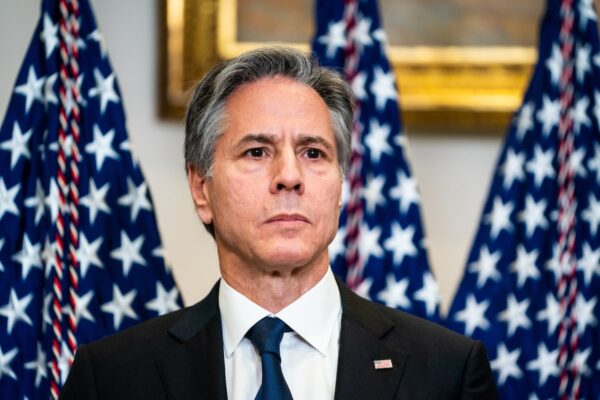
Engage, don’t cancel, China over the balloon
Breathlessness over a balloon has revealed more about U.S. politics than Chinese policies. Afraid of looking soft on China, the Biden administration is failing to turn China’s blunder into a diplomatic opportunity. Instead of postponing Secretary of State Antony Blinken’s trip to China in protest, President Biden should have directed Blinken to present Chinese President Xi Jinping with recommendations to increase transparency and lessen dangers.
China was clearly embarrassed by the episode. Xi either knew or, more likely, should have known that his balloon-launching bureaucracy was on a possible crash course with Blinken’s upcoming visit. Beijing expressed “regret,” a diplomatic form of apology. I suspect some Chinese dirigible navigators have tumbled to a hard political landing.
When the other side stumbles, the best move is just to get out of the way, then point to a better path. Blinken should have told Xi privately that China must appreciate that it left Biden no choice but to destroy the intruder — exactly as China would have done. He could have added that the president sought to avoid inflating a drama of China’s creation. The lesson for both sides, Blinken should have concluded, is that efforts to gather intelligence can spin out of control and lead to crisis.
The rising competition between the world’s leading powers grows ever more dangerous. The job of diplomacy is to manage those dangers through open communication. Both China and the United States stretch for information because they seek to know about the capabilities and — if possible — intentions of the other.
But competition for information advantage risks conflict — and not just over balloons. China has threatened American planes flying along China’s coast to collect signals intelligence as well as American ships in nearby waters. China has invaded U.S. cyberspace, and now the United States’ physical territory. The U.S. military has been prudent in avoiding hair-trigger responses to non-threatening intrusions to avoid the risk of blasting civilian or even reconnaissance aircraft that unintentionally stray over frontiers. But there are further ways to reduce the risk of a fatal misstep.
Blinken should propose to Xi that both countries open channels to communicate rapidly — modern hotlines — to avoid escalations from information-gathering to kinetic conflict. Americans have not been fearful of sharing information, even with rivals. In 1955, President Dwight D. Eisenhower proposed “Open Skies” photographic overflights to the Soviet Union, because he recognized the need to lessen nuclear risks during a long-term competition. President John F. Kennedy took the first step to limit tests of nuclear weapons after teetering on the brink of war in 1962. President Ronald Reagan in the 1980s began arms negotiations with his Soviet counterpart, with a clear-eyed credo: “Trust but verify.”
Rather than mimic Soviet premier Nikita Khrushchev’s umbrage in 1960 when a U.S. spy plane was shot down over Russia, Biden should instead look to his own principles about the strengths of open societies. Blinken should explain why intrusions such as the balloon — accidental or not — demonstrate the need for built-in precautions. Washington should propose a transparency agenda to share information without over-reliance on spying. Both sides will, of course, remain suspicious of one another. But the United States already is relatively open about its military posture — not because it is weak, but because it understands that clarity of strength can deter aggression.
A transparency agenda with China could begin with exchanges of reports on military forces, equipment, facilities and exercises, especially in the seas and airspaces of the Indo-Pacific region. The parties could incorporate technological verification measures. As China enlarges its nuclear forces, both sides need a transparency, safety and verification program like those the United States developed with the Soviet Union. This agenda should be enlarged beyond military issues and intelligence-gathering. For example,
the world needs open communications between leading powers to quickly share details on viruses and outbreaks that can cause pandemics. To help developing countries deal with unsustainable debt, lending countries should open their books concerning loan terms and amounts. The two countries can also improve the information flow concerning greenhouse gas and climate measures. Exchanges of verifiable information are the first steps in building confidence to work together on mutual interests.

